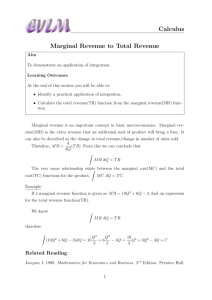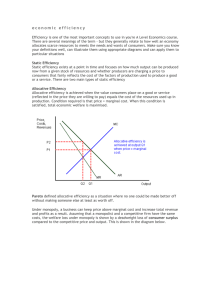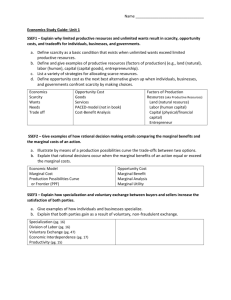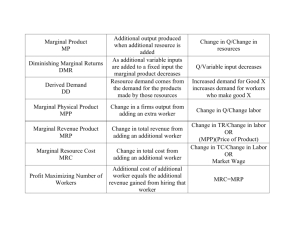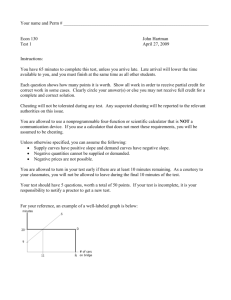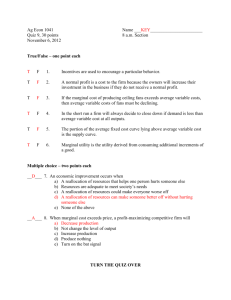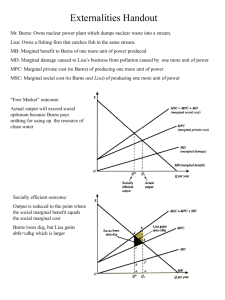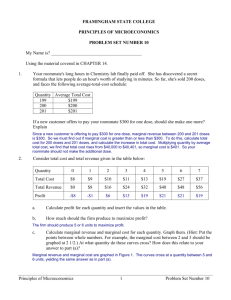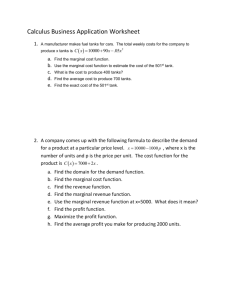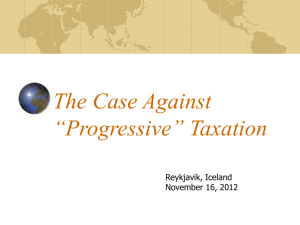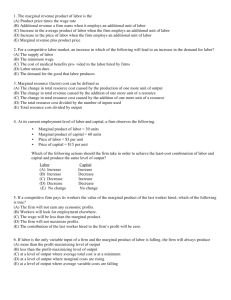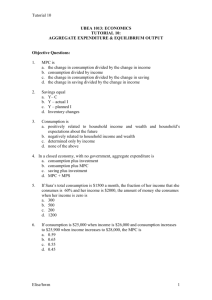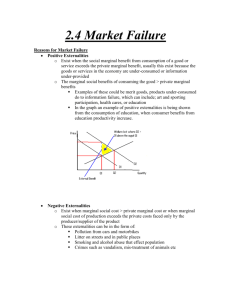Model Essay Answer – May 2006 SL Paper 1 Q1
advertisement
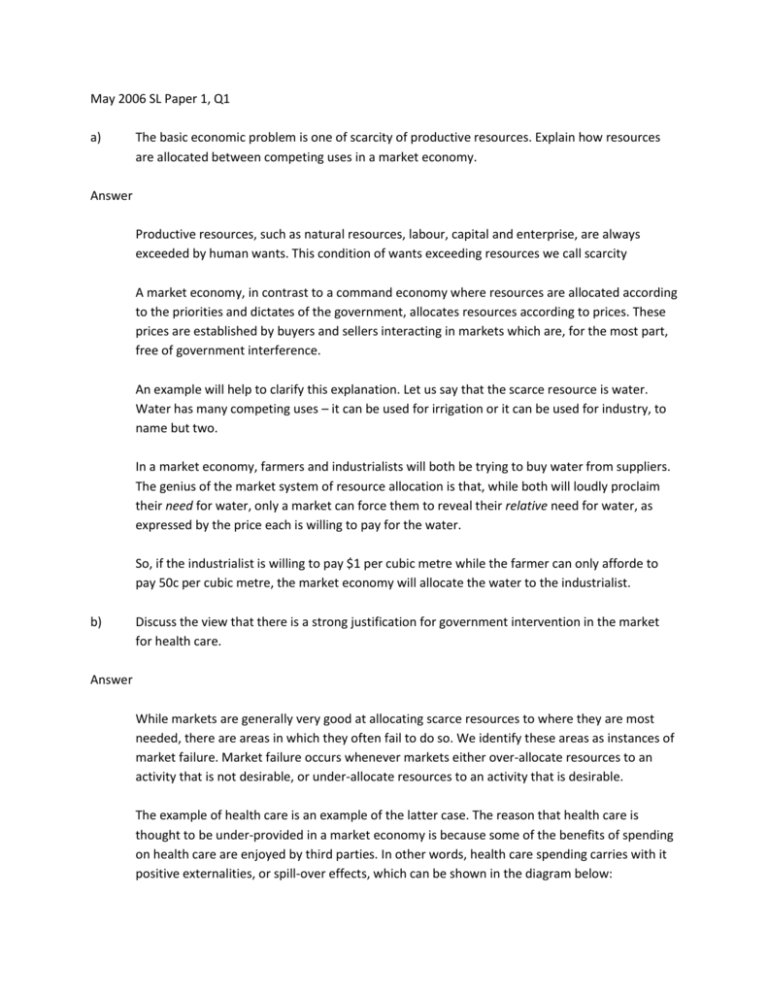
May 2006 SL Paper 1, Q1 a) The basic economic problem is one of scarcity of productive resources. Explain how resources are allocated between competing uses in a market economy. Answer Productive resources, such as natural resources, labour, capital and enterprise, are always exceeded by human wants. This condition of wants exceeding resources we call scarcity A market economy, in contrast to a command economy where resources are allocated according to the priorities and dictates of the government, allocates resources according to prices. These prices are established by buyers and sellers interacting in markets which are, for the most part, free of government interference. An example will help to clarify this explanation. Let us say that the scarce resource is water. Water has many competing uses – it can be used for irrigation or it can be used for industry, to name but two. In a market economy, farmers and industrialists will both be trying to buy water from suppliers. The genius of the market system of resource allocation is that, while both will loudly proclaim their need for water, only a market can force them to reveal their relative need for water, as expressed by the price each is willing to pay for the water. So, if the industrialist is willing to pay $1 per cubic metre while the farmer can only afforde to pay 50c per cubic metre, the market economy will allocate the water to the industrialist. b) Discuss the view that there is a strong justification for government intervention in the market for health care. Answer While markets are generally very good at allocating scarce resources to where they are most needed, there are areas in which they often fail to do so. We identify these areas as instances of market failure. Market failure occurs whenever markets either over-allocate resources to an activity that is not desirable, or under-allocate resources to an activity that is desirable. The example of health care is an example of the latter case. The reason that health care is thought to be under-provided in a market economy is because some of the benefits of spending on health care are enjoyed by third parties. In other words, health care spending carries with it positive externalities, or spill-over effects, which can be shown in the diagram below: Price Marginal Private Cost Marginal Social Benefit Marginal Private Benefit Qp Qs Quantity The benefit to the individual of spending on health care is called the marginal private benefit. However, if a person spends on their own health, they are less likely to get sick and thereby spread disease to others. They are also, being healthy, likely to be more productive workers and more engaged parents and partners and citizens. These benefits to others, added to the benefits to the individual, give us the marginal social benefit of spending on health, which is shown here as greater than the marginal private benefit. Looking still at the diagram, we can see that the quantity of health care the individual would seek would be Qp even though the quantity he should seek were he to consider the spill-over effects of his good health is Qs. Thus, we can see that, due to the presence of positive externalities, resources tend to be under-allocated to health care. As such, there is a strong case to be made for government intervention. Most commonly, governments subsidize health care or even provide it to citizens for free. Subsidies have the effect of shifting marginal private cost down and to the right, thereby moving the intersection of this new, subsidized MPC with MPB closer to the intersection of the original MPC and MSB lines. However, subsidies do cost the government money which may have been better used somewhere else. The free provision of health care, meanwhile, can lead to shortages and long waiting times for basic procedures. Overall, though, there is a strong justification for government intervention in the market for health care in order to capture the welfare gains to society offered by its positive spill-over effects.

